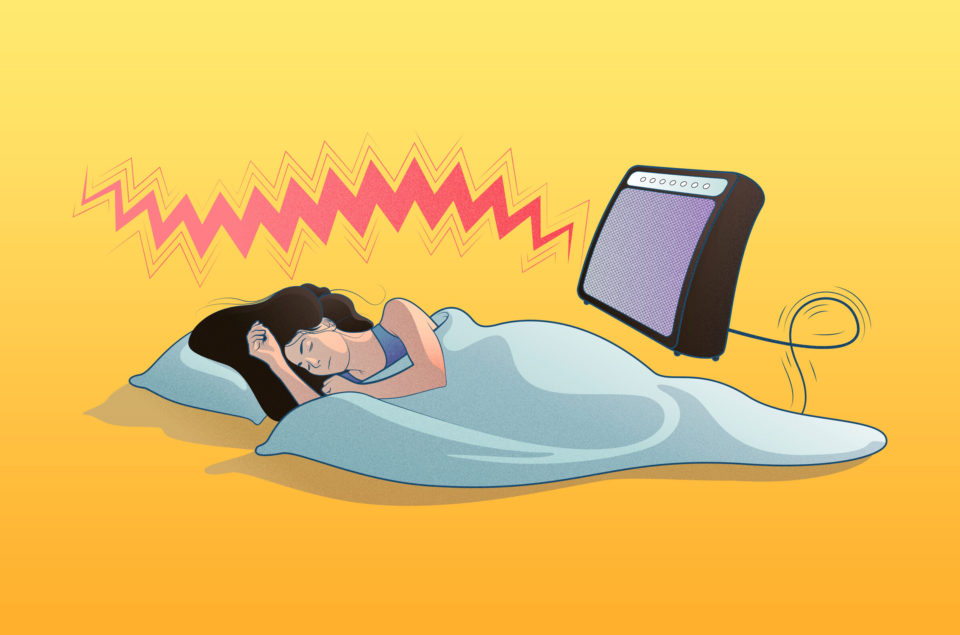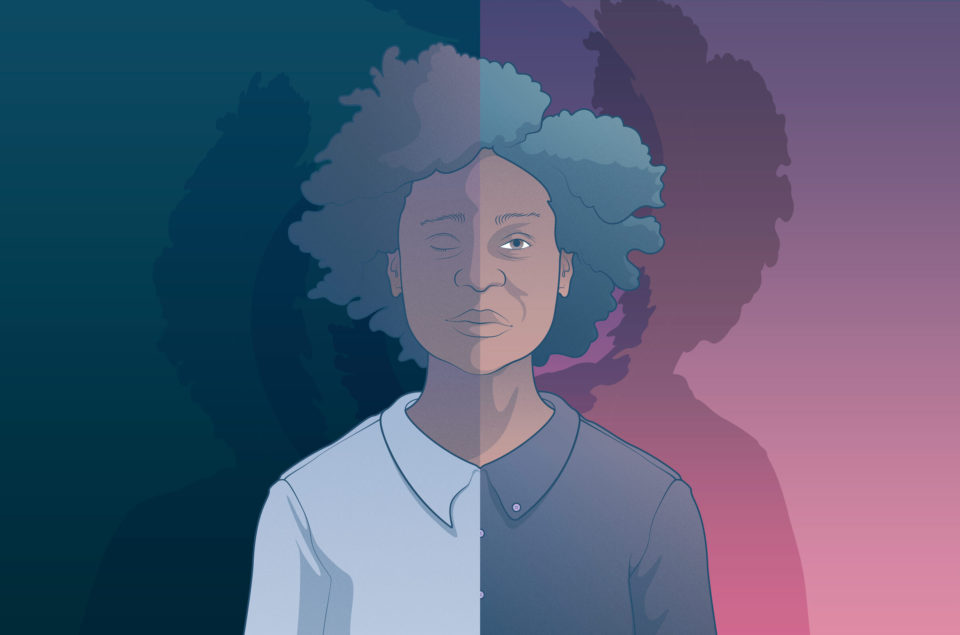A good night’s sleep plays a critical role in restoring us and keeping us healthy. Yet sleep is not a static state of mind, and quality sleep is not simply the number of hours you clock in. In fact, as we sleep, our mind travels through different phases, each of which contributes in varying ways to our overall sleep quality. Here we untangle what happens when we sleep, explain the difference between REM and Non-REM sleep, sleep cycles and sleep stages and how the different stages affect your mind and body.
Sleep cycles vs. sleep stages – what’s the difference?
A sleep cycle is the physiological process that we go through as we sleep. We don’t sleep in one long phase, it’s much more complicated – and interesting – than that! Our total nightly sleep is made up of several sleep cycles. Each sleep cycle is typically classified into four sleep stages: N1, N2, deep sleep (also called N3) and REM sleep.
Not all sleep cycles during a night’s sleep necessarily contain all four sleep stages. For instance, we have more deep sleep and less REM sleep at the beginning of the night. Towards the morning, we have more REM sleep, but usually very little or no deep sleep in these later sleep cycles. Having less disruption during each sleep stage contributes to higher quality, recuperative sleep.
How long does a sleep cycle last?
On average, each sleep cycle typically lasts between 90-120 minutes each, as not all sleep cycles are the same length.
How many sleep cycles do you go through each night?
Typically, a person will experience 4-5 sleep cycles each night. However, this number is greatly influenced by age and other factors that affect how much sleep you need overall.
Sleep stages within the sleep cycle: a breakdown
Each of the four sleep stages has a distinct purpose, sparking unique brain activity. As we move through the stages, our breathing slows down, our muscles begin to relax and our heartbeat slows – all of this helps to recharge our mind and body as we sleep. Even though the brain remains hard at work during sleep, it is restorative labor!
| Sleep stages | Type of sleep | Other names | Normal length of each stage (per cycle) |
| Stage 1 | Non-REM | N1 | 1-5 minutes |
| Stage 2 | Non-REM | N2 | 10-60 minutes |
| Stage 3 | Non-REM | N3, Slow-Wave Sleep (SWS), Delta Sleep, Deep Sleep | 20-40 minutes |
| Stage 4 | REM | REM Sleep | 10-60 minutes |
Our understanding of sleep stages keeps evolving: Prior to 2007, many sleep experts referred to five sleep stages. After a study was released by the American Academy of Sleep Medicine (AASM), the majority consensus was updated to confirm that there are four sleep stages within a sleep cycle.
What are non-REM (NREM) sleep stages?
Non-REM or NREM stands for Non-Rapid Eye Movement Sleep. During NREM sleep, your brain activity changes and your body relaxes. NREM sleep includes three distinct stages.
- Stage one: This is when you doze off and begin to sleep. Brain activity slows and the body may twitch.
- Stage two: Body temperature drops, muscles relax. Breathing and heart rate slow down. Brain activity slows down, but with short bursts of activity that help you stay asleep and are essential for memory functions.
- Stage three: You’ve officially reached deep sleep! Your muscles relax further in this stage and brain activity has a wave-like pattern. This stage is key for body recovery, removing toxins, memory consolidation, and growth. However, waking up in this stage can feel like a rude awakening and result in a groggy feeling.
What is the REM sleep stage and why is it important?
During REM (Rapid Eye Movement) sleep, the fourth stage in the sleep cycle, brain activity accelerates, and our body experiences muscle atonia- a temporary paralysis. Although the eyes can sometimes be still, mainly the eyes can be seen moving rapidly beneath the eyelids with the occasional rapid muscle twitching. Though dreams can pop up during any sleep stage, REM sleep is when we experience our most wild, vivid dreams.
REM is thought to be important for emotions and motor-sensory functions. During REM sleep, the brain performs essential tasks: putting memories in their place, and enhancing cognitive functions. Think of sleep as a quiet time when our brain can finally get some housekeeping done.
How well are you sleeping at night?
When we don’t achieve good sleep regularly, including REM sleep, we can feel the effects, especially in our ability to focus, think, and retain information. The different sleep stages likely work together and complement each other. We need all of them for proper processing during sleep.
If you are constantly tired during the day, if you are feeling moody or irritable, or if you are struggling to focus, it’s possible that your sleep stages are being disrupted, by frequent arousals or other reasons, and as a result, the quality of the sleep you are getting suffers. It is important to consult a physician if you suspect a sleep disorder. A sleep tracking app can also monitor your sleep and help you determine if your sleep cycles are being disrupted.
Healthy sleep habits and how to improve your sleep cycles:
Everyone is different and the amount of sleep we need varies for each individual. Yet there are a few common factors that can help improve the quality of your sleep. Waking up several times during the night for a prolonged period of time will most likely result in achieving less of NREM stage 3 sleep, that is, deep sleep.
Over time this can affect your sleep quality and cause sleepiness and lack of focus during the day. Keeping a diary or using the Sleep Cycle app to note whether external factors, such as alcohol, caffeine intake, or stress contribute to a restless night’s sleep can be helpful for you to understand what steps you can take to improve your sleep. Making sure your bedroom is dark and cool and developing a routine that helps you wind down before bedtime can also lead to a better night’s sleep.
Sleep and the quality of our sleep are fundamental to our well-being. Sleep cycles, and the sleep stages within them, are the reason we can take on each new day. So stay calm and carry on sleeping.










